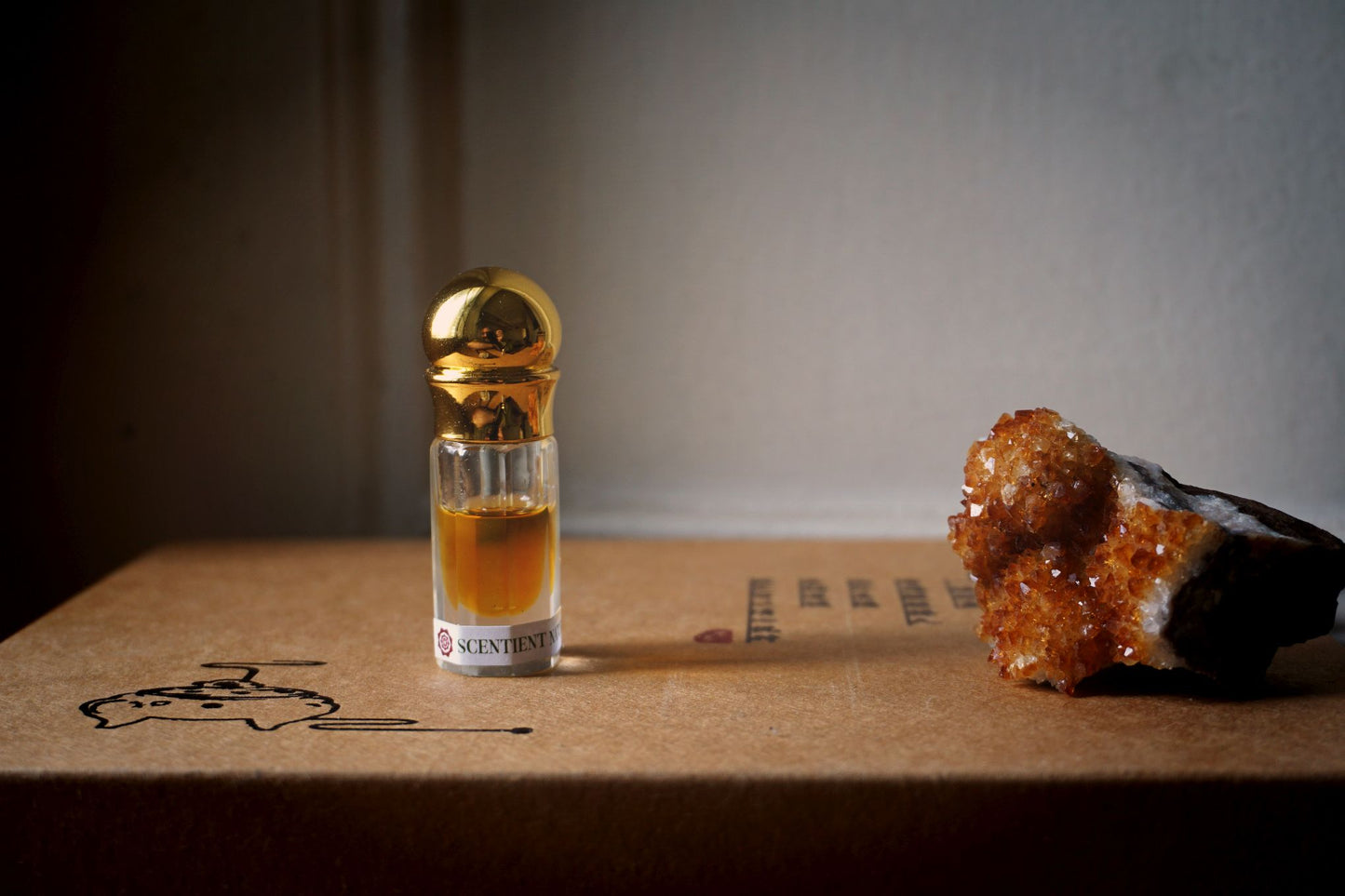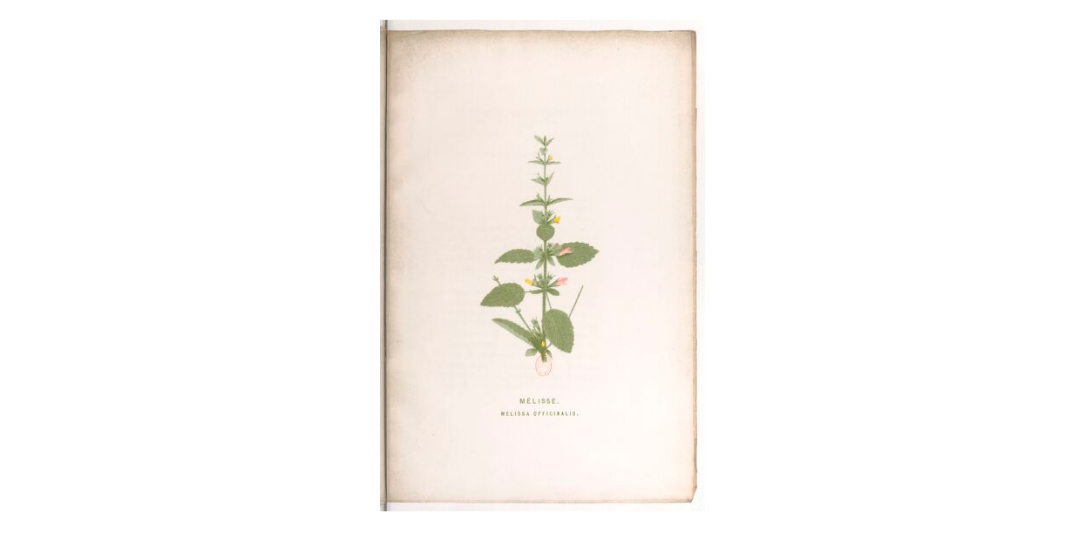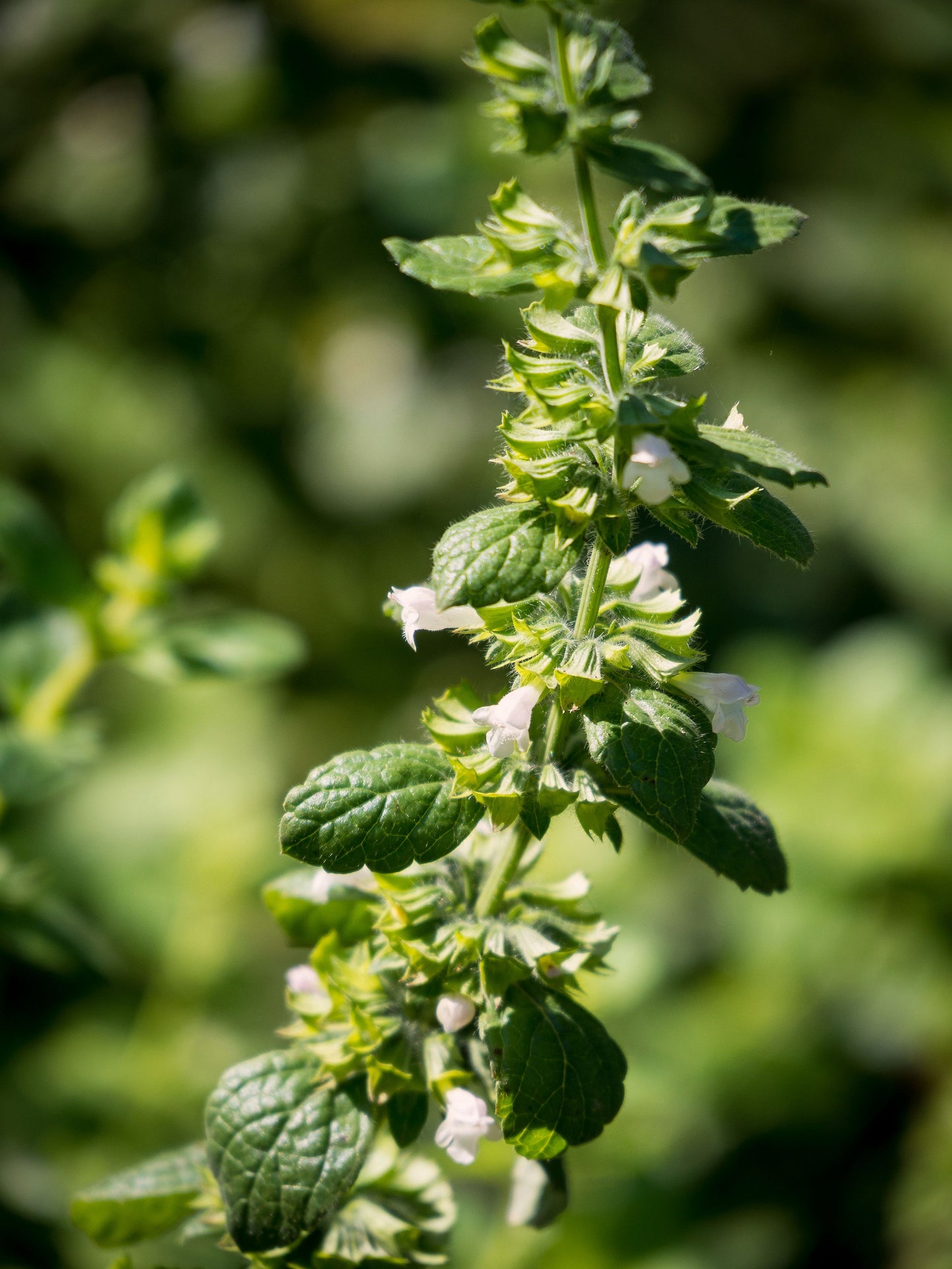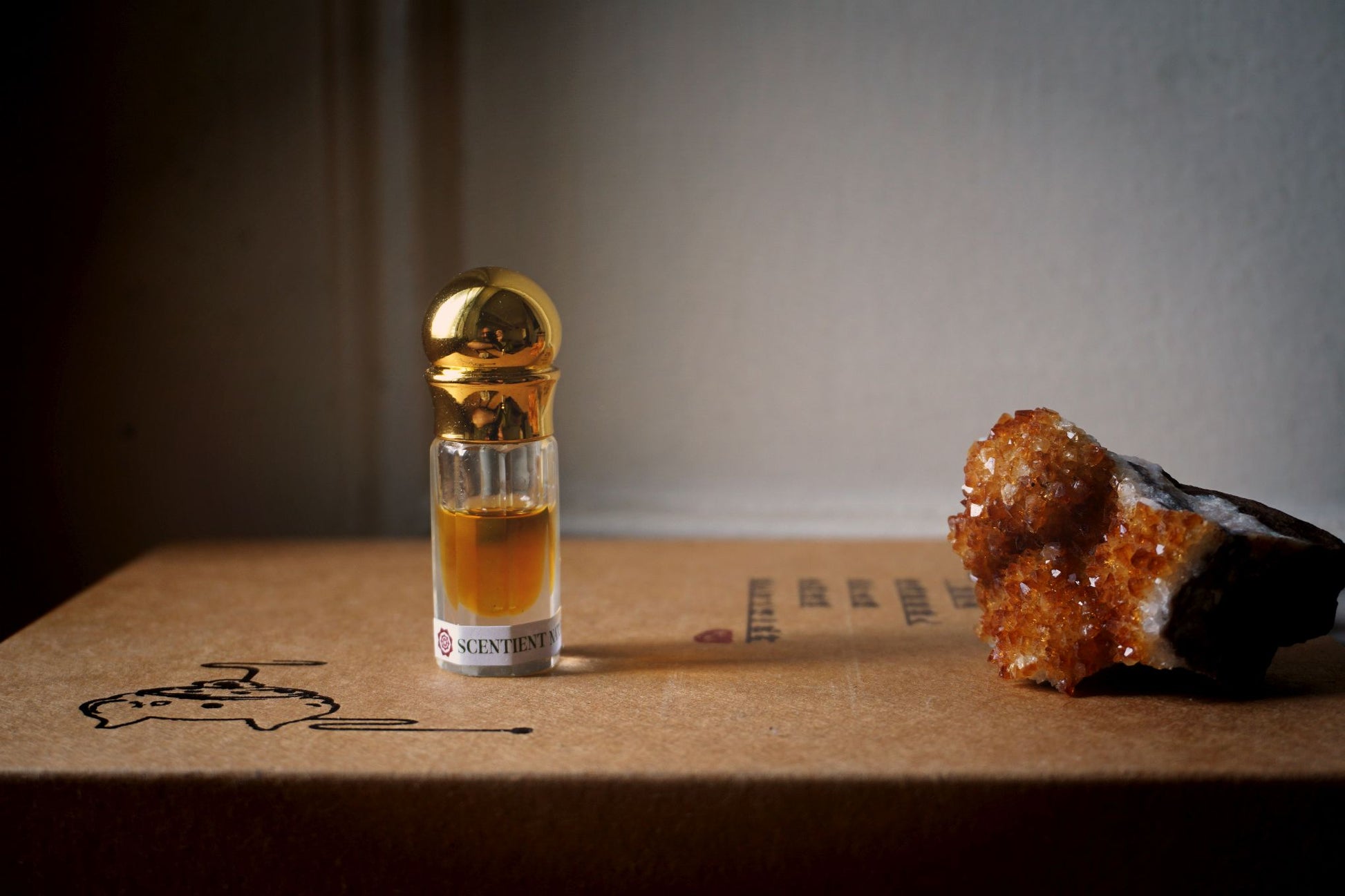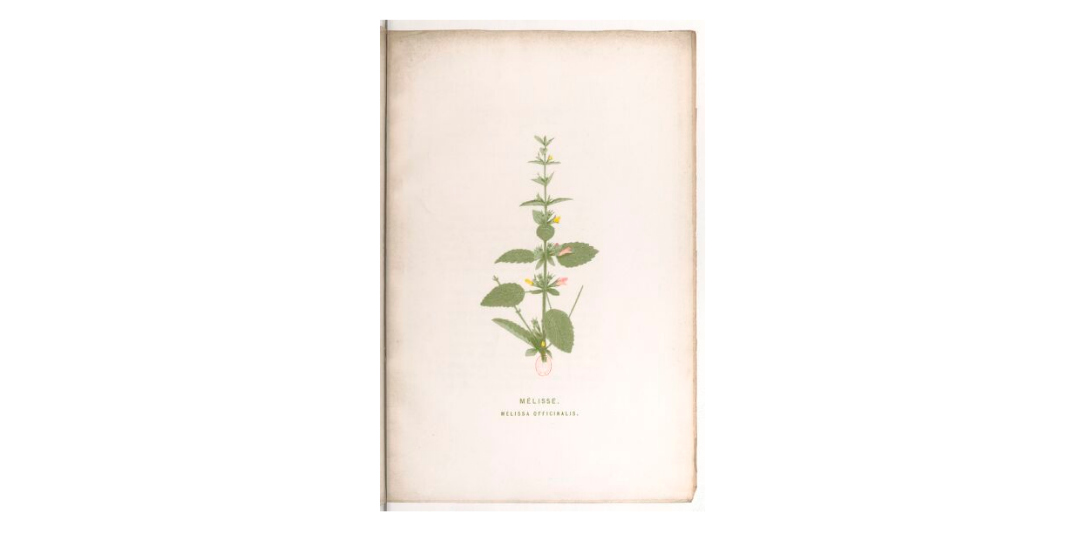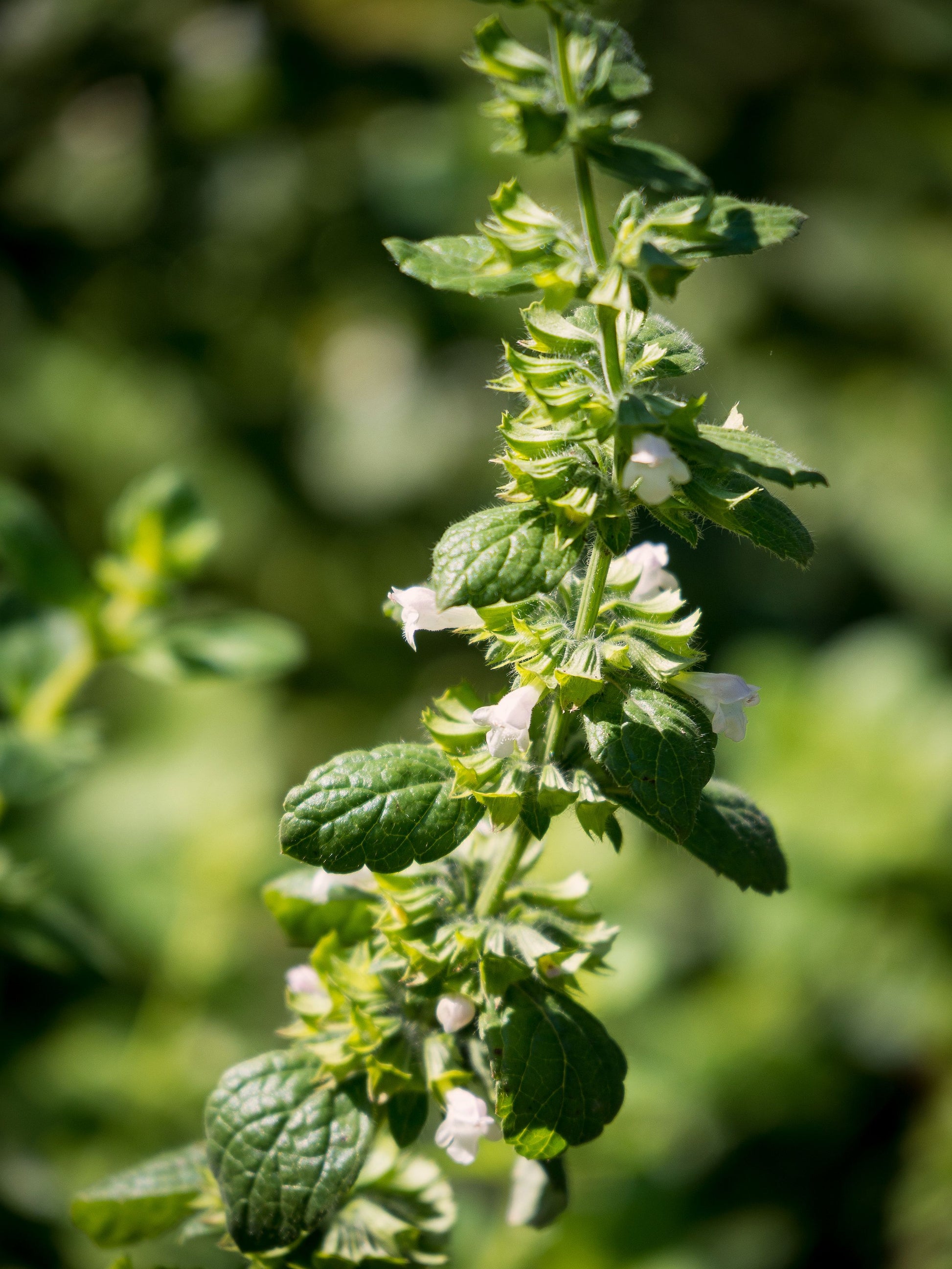Scentient Nature
SWEET HONEY LEAF - Our Remarkable Melissa Reserve Pure Essential Oil (lemon balm)
SWEET HONEY LEAF - Our Remarkable Melissa Reserve Pure Essential Oil (lemon balm)
Couldn't load pickup availability
Melissa officinalis (lemonbalm) is an important plant in the history of medicinal plants, aromatherapy and perfumery.
Its essential oil has a singular "in-between" status. The plant itself is quite common and widespread, and used in multiple ways, notably as a soothing herbal tea. It is very tricky to distillate, tough and requires an enormous amount of raw material (up to 7 tons per kg oil) and a delicate distillation process to bring the best out of the plant. All this make Melissa a rather exclusive and special essential oil, that falls somewhere between classical aromatherapy (for its powerful properties) and high perfumery as it is a pricy oil that, when well distilled can be very subtle.
Like many aromatics, depending on where and how it is grown, and how it is distilled, the essential oil will have very different concentrations of its main components and therefore very different olfactive profile.
|
The present oil is very special, it is deep and sweet but keeps the herb's delicious freshness. The citrus family notes here are round, deep, candied and evoking honey, not fresh and sharp like in most melissa oils. It also has surprising heady floral notes. Unsurprisingly, the robe is darker than usual with a deep saffron-citrine-honey colour. To describe via metaphor how it differs from most other melissa oils, I'd compare it to a vintage refined rum. The scentient experience is deeply grounding, pacifying, slightly hypnotic. Artisan Melissa oil from France. 100% pure and natural. Organic. If you are interested in a more classical melissa profile, check this great oil. It is less pricey, also. |
Melissa officinalis is a perennial herbaceous plant native to Central - South Europe & the Mediterranean Basin but now naturalized virtually everywhere. It belongs to the Lamiaceae family, which also includes species renowned for their fragrance, such as lavender, mint or patchouli.
The name comes from the classical Greek and Latin melissophulon: "honey leaf". In ancient times, it was grown to feed bees and act as bait when they swarmed. It still is used a melliferous plant today, to attract honeymaking bees. Some beekeepers also pick it and rub the inside of a hive with the fresh plant just as a new swarm is introduced to encourage it to adopt its new home. The other part of the name 'officinalis' attests of its tradition of use in apothecaries.
Its use in the Middle Ages is noted by herbalists, writers, philosophers, and scientists. Carolingian capitularies recommended it for monastery gardens. Avicenna used it to strengthen the heart and combat melancholy, while Paracelsus declared it the best herb for the heart.

It is also widely used for cooking sweet and savory dishes, added fruit and vegetable salads and soups, and is used in Spain to flavour milk. It is of course an herbal tea favourite.
It is also used in liqueurs such as Chartreuse and Benedictine, and in the famous eau de mélisse of the Carmelite monks. The Carmelite lemon balm water provided relief for courtesans of Louis the XIV court, who were prone to nervous ailments. Richelieu always had some nearby to treat his migraines.
Bottles / Vials Info
Bottles / Vials Info
See and read more about our different vials & bottles before ordering (link here)
Terms, Conditions, Scope of use, etc
Terms, Conditions, Scope of use, etc
We advise that you read this section before buying anything. Any purchase on this website imply that you accept all terms and conditions detailed in there.
Care information
Care information
For optimal longevity:
Keep away from (sun)light, heat, oxidation and external materials in the bottle : they degrade your aromatics.
Keep in the dark at room temperature, ideally below 25 Degrees Celsius
Discounts
Discounts
Check our conditions for automated Discounts and free shipping (click here)
